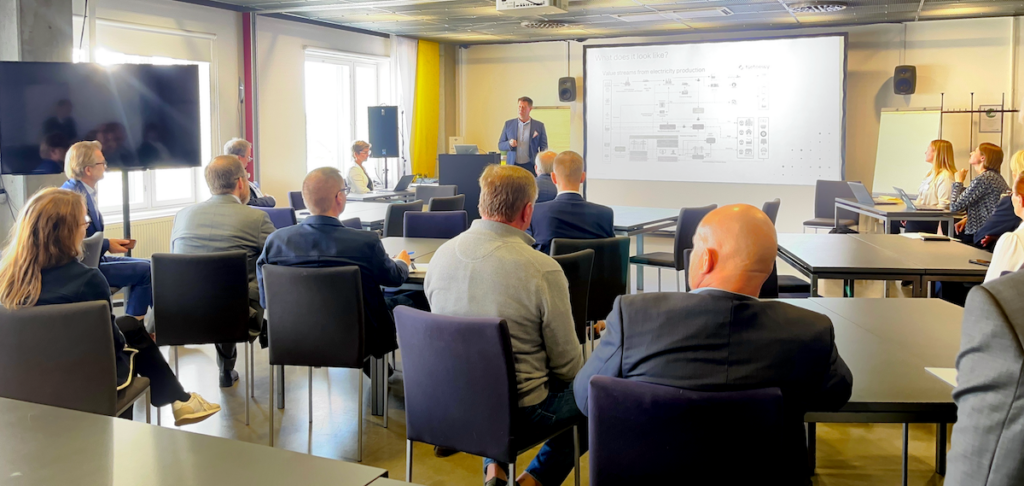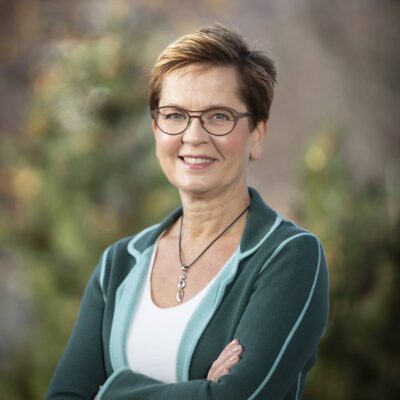Digitalization brings residents closer to city development
New digital technologies, alongside AI-aided feedback and survey solutions, can bring the development of local areas closer to the everyday lives of residents. This was the main takeaway on digitalization at the WALCC Forum in September.
The World Alliance for Low Carbon Cities (WALCC) organized its annual Forum together with the City of Porvoo in September 2024. The event showcased how cities aiming for carbon neutrality must simultaneously implement a change in four areas: urban planning, renewable resources, green construction, and urban transport.
Digitalization was one of the themes that offered urban decision-makers an overview of best practices and key development trends.
The WALCC Forum also featured sessions led by partners of the Nordic Superblock initiative (NSDC), which is a collaboration between businesses, Synocus, and Tampere University.
From Tampere University, Professor Kaisa Väänänen from the Faculty of Information Technology and Communication Sciences (ITC) participated in the event. Professor Väänänen led the discussion on how digitalization enables residents’ participation in the development of areas and the pursuit of carbon neutrality.
Digital participation and engagement play a crucial role in fostering sustainable urban development. New digital technologies such as AR, VR, and digital twins can be used alongside AI-aided feedback and survey solutions to bring the development of local areas closer to the everyday lives of residents. The discussion suggested the key lies in offering a comprehensive view of the plans stretching into the future.
A key factor is motivating people through clear incentives, such as making the personal benefits of involvement explicit and meaningful.
Professor Väänänen led the session on the potential digitalization holds to engage residents in city development together with Fredrik Jansson, Head of Business Development, Energy & Utilities at Tietoevry, Airi Mölsä, Senior Specialist at KONE, and Anniina Autero, Project Manager from the City of Tampere.
Professor Väänänen then joined the subsequent panel discussion, Aiming for Tiger Leaps – Moving Forward Together, moderated by Mikko Kosonen and including Fredrik Pressler, Johan Wallin, and Toni Tuomola to share insights from the discussion on citizen engagement.
Hybrid participation models are needed to make it for everyone
Providing responsive feedback is essential in maintaining engagement. We need effort to involve a broad range of individuals, including those whose views may fall between extremes. Tools such as visualizations, simulations, and digital twins help reduce complexity and make the future invisible more tangible.
While artificial intelligence (AI) has great potential, it is important to recognize that it is not always fully trustworthy. This should be considered when designing participation strategies. It is also important to recognize that not everyone is comfortable with digital platforms. Therefore, hybrid participation models that combine digital and traditional methods are needed to be inclusive and accessible.
Action research and fostering community-driven engagement
At the heart of the Nordic Superblock initiative lies the concept pioneered by Tampere University. Nordic Superblock refers to a residential block area where resources are shared among all the residents in the block rather than limiting them to the residents of a single building. The idea is to introduce an intermediate scale to urban planning and development, where residents’ shared spaces, activities, and services can be distributed across one or more blocks.
Professor Väänänen specializes in human-technology interaction and leads one of the research groups in our Nordic Superblock (NSDC) initiative.
From Tampere University, the NSDC project also includes research groups led by Senior Lecturer Markus Laine and Professor of Industrial Management Tuomas Ahola from the Faculty of Management and Business.
Tampere University conducts action research on the Nordic Superblock process, engaging key stakeholders and future residents throughout the process. The University fosters the co-development of community-driven sustainable district developments in Finnish cases and benchmarks selected European cities.

